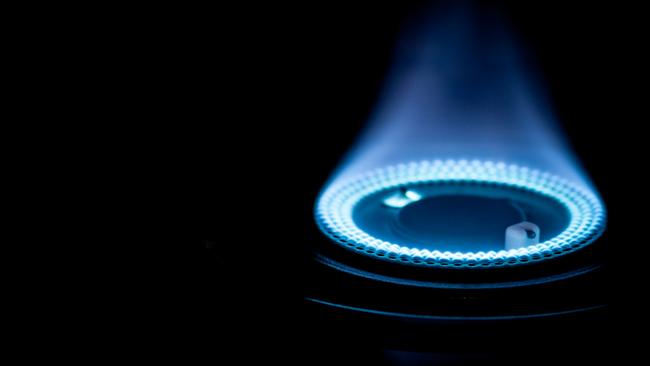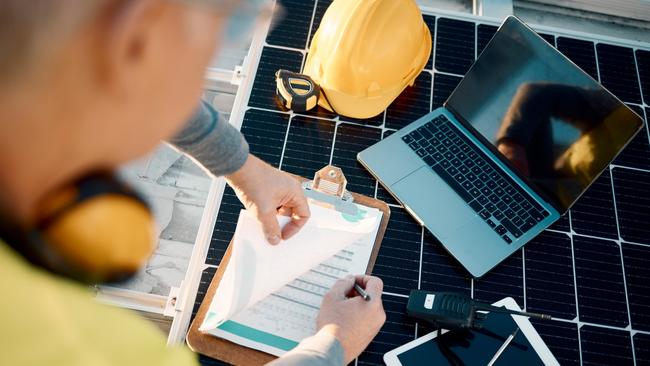Banning new gas appliances is not a disaster on its own but impacts the power dynamics longer term

In the case of the games, the signature policy was the decision on the eve of the 2022 election to shift the aquatic events from an existing facility in the safe Labor seat of Geelong to what was a temporary aquatic events facility in an adjoining marginal electorate.
That successful signature policy was accompanied by other regional vote-gathering manoeuvres, so the games went from being hosted in three regional centres to six centres in key electorates, with an enormous explosion of costs.
Once the election was won and a respectful time had elapsed, the games plug was pulled because the political decisions were too costly.
In the case of the electricity system, the disaster signature policy is banning gas heaters and cook tops in new homes from January 1, 2024.
Like the aquatic decision, the banning of new gas appliances from 2024 is not a disaster on its own. But also like the games’ aquatic decision, it is what happens next that creates the power disaster.

The banning of new gas appliances tells the community gas in homes is to be phased out and signals that the industry’s use of natural gas will be greatly reduced.
No other state relies on gas to the extent of Victoria, and if all the gas used is replaced by electricity, it will double the state’s demand for electricity.
Already the state is struggling to try to replace brown coal-generated power with wind turbines, solar and other renewable facilities because of the difficulty and cost of constructing big new power lines from generating sites to the main areas of usage, such as Melbourne.
There have also been long delays in gaining approval to erect wind turbines because of the bureaucracy at the Australian Energy Market Operator.
Such an enormous rise in the amount of electricity required would compound those problems and explode the costs of power. The looming price rises, including network costs, will over time at least double power bills.
What makes wind and solar so expensive is that power generators only last about 30 years.
But the looming power price disaster becomes much bigger because such an enormous increase in the need for power means that the wiring system in places like Melbourne must be substantially reorganised and expanded.
And the network costs will be further increased by the coming boom in electric cars and the increased use of power in computerisation and modern electronic devices.
Most of the wind and solar power generators, the massive power lines from remote areas and the extra facilities in places like Melbourne will be provided by private capital.
In rough terms, the return on that capital will be in the vicinity of 10 per cent, and the network companies are set to make a fortune.

The biggest Victorian beneficiary will be the Powercor CitiPower group owned by the CH Infrastructure in Hong Kong, KKR, and the Ontario teachers pension fund.
Australians sold out, not knowing about the looming explosion in network charges to enable the distribution companies to make a satisfactory return on the enormous investments they will be required to make.
Victoria can be one of the leaders in both Australian low-cost power and meeting carbon reduction targets, but it needs to take decisions now that will lose green votes.
Already gas provides about 20 per cent of Victoria’s power needs and extra gas power is needed to enable an efficient run-down in the use of brown coal. Gas is an interim power-generating source to reduce the carbon emissions from brown coal, and Victoria is brilliantly placed to execute that strategy.
It has enormous low-cost onshore gas reserves that do not require fracking and are probably the cheapest in Australia.
Better still, the water produced with this gas can be used to grow plants that can store carbon in their roots. But in the longer term, Victoria and other states need lower-cost, more reliable power generation alternatives than wind and solar.
Victoria’s low-cost, low net carbon gas can help both Victoria and NSW.
It can be supplemented by small, low-cost nuclear plants.
The emerging molten salt-cooled thorium plants and other developments will enable the zero emission by 2050 target to be met.
That will still not avoid the massive investment in distribution, but it will lessen the blow, particularly if a substantial amount of power comes from Gippsland where there is already substantial long-distance power cables connecting networks.
What’s required in Victoria is not populist games to gain green votes but a cold, hard look at the facts. NSW was also heading down a similar populous path to Victoria, but recently appointed Cameron O’Reilly to check up on its energy policies. He is reputable and is expected to tell the truth.
Many readers will be surprised that I have not mentioned the name of the Victorian Premier, who is obviously the main architect of the games and power disasters.
Victorian government politicians elect the leader. They will have to tell their children, grandchildren and/or friends that they did not have a courage to elect a leader that would come face-to-face with Victoria’s potential power mess at a time when it was still avoidable.
If the ALP politicians don’t do their job, then the credit rating agencies need to do theirs and downgrade Victoria’s credit rating substantially, so the government is forced to face the situation.






The Victorian government is applying to the state’s troubled electricity system policies that are eerily similar to those that destroyed the Commonwealth Games. And in each case there is a signature strategy that is electorally popular but has disastrous consequences.